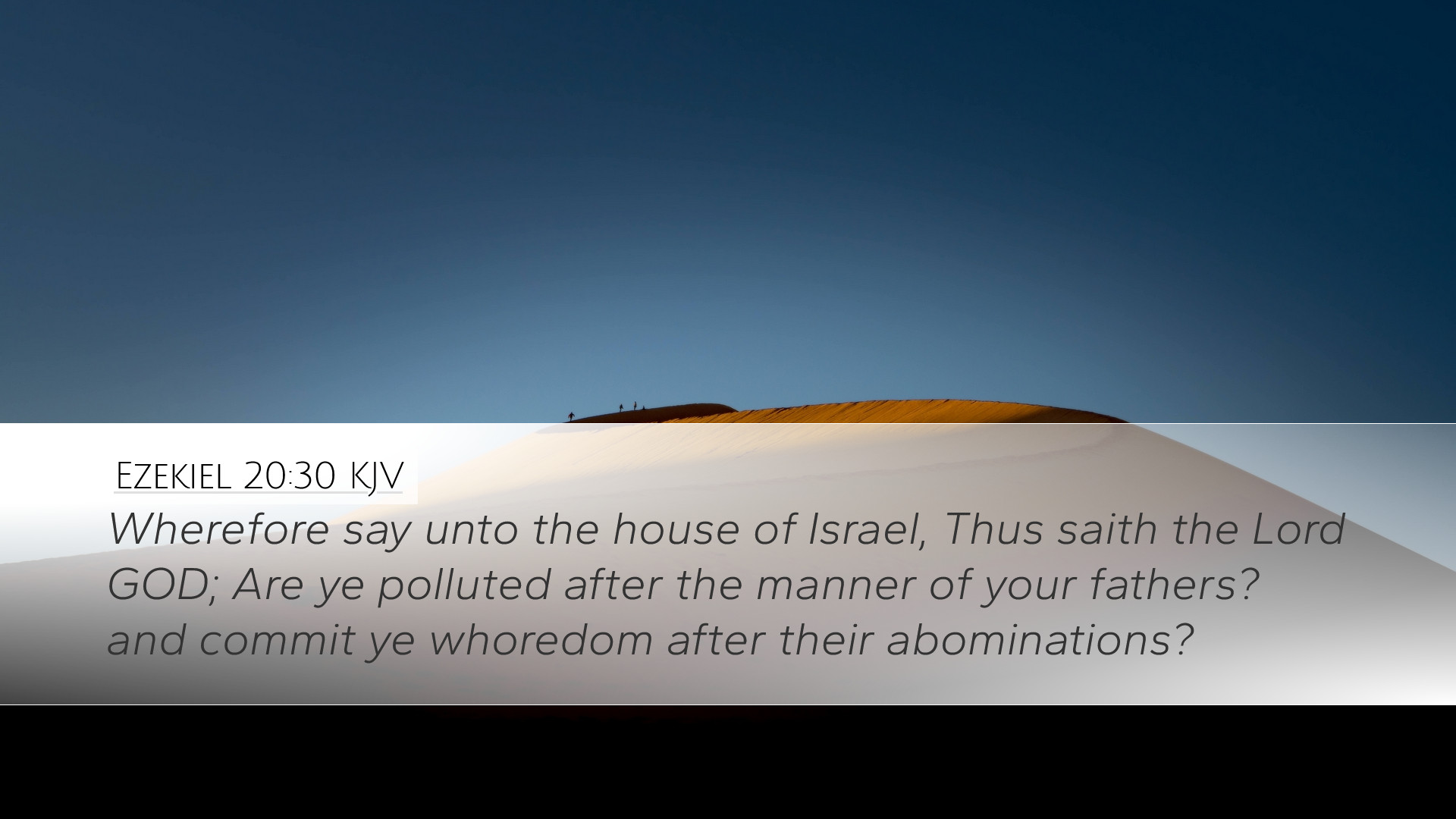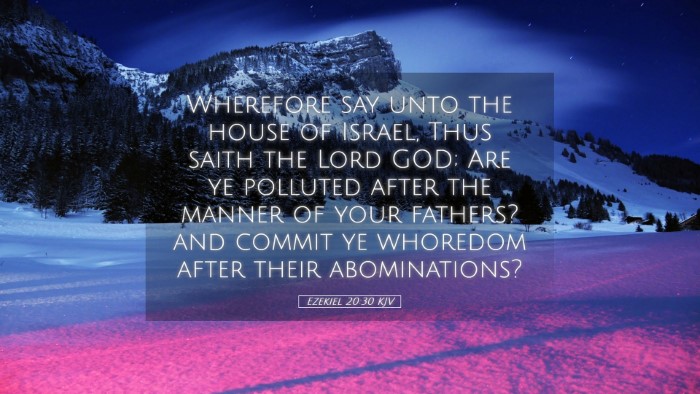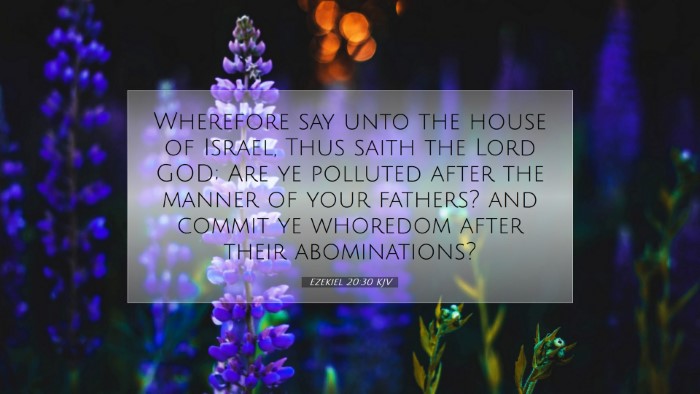Ezekiel 20:30 - Commentary and Insights
Bible Verse: "Wherefore say unto the house of Israel, Thus saith the Lord God; Are ye polluted after the manner of your fathers? and commit ye whoredom after their abominations?"
Contextual Background
The book of Ezekiel is a prophetic book that addresses a deeply troubled Israelite community during their Babylonian exile. Ezekiel, a priest and prophet, speaks on behalf of God to urge the people to recognize their sinfulness and the necessity for repentance. Chapter 20 highlights the historical context of Israel's relationship with God, emphasizing the people's continuous rebellion and the consequences they face.
Commentary
Matthew Henry's Commentary
Matthew Henry points out that in this verse, God addresses the Israelites, asking them about their spiritual condition. He emphasizes that the pollution mentioned here refers to idolatry and sinful practices inherited from their forefathers. The idea of "whoredom" metaphorically illustrates Israel's unfaithfulness to God, akin to an unfaithful spouse.
Henry elaborates on the rhetorical approach of God in questioning the house of Israel, which is designed to provoke introspection among the people. He suggests that the Lord desires His chosen ones to examine their hearts and recognize how their actions align with or deviate from His commands. Such introspection is crucial for acknowledging one’s need for redemption.
Albert Barnes' Notes on the Bible
Albert Barnes provides a deeper analysis of the phrases "polluted after the manner of your fathers" and "whoredom after their abominations." He explains that the term "polluted" refers to the contamination of their faith and practices through the adoption of pagan rituals. For Barnes, this not only signifies individual sins but also the collective failure of Israel as a covenant community.
Additionally, Barnes comments on God's question as a call to accountability. He implies that God is not merely asking for information; rather, He seeks a confession of guilt. In this context, the prophet’s role is to reveal the people's iniquity so they might turn back to righteousness and re-establish their covenant with God.
Adam Clarke's Commentary
Adam Clarke highlights the importance of the term "abominations," detailing the egregious nature of the practices Israel adopted from neighboring cultures. Clarke notes that these practices included idolatry and immoral acts that were not only contrary to God's law but also destructive to the very fabric of society. By following their ancestors into sin, the current generation of Israelites perpetuated a cycle of disobedience.
Clarke also reflects on the psychological impact of sin on a community. He posits that when people stray from God, they not only harm their relationship with Him but also affect future generations. This passage serves as a warning and reminder that the spiritual failings of one generation can lead to calamity in the next. Clarke calls for a return to the principles of faithfulness and obedience as the pathway to restoration.
Theological Implications
Each of the commentators provides a unique perspective that reveals deep theological implications concerning Israel's identity and relationship with God. The charge of "whoredom" signifies a breach of covenant and trust, inviting deeper exploration into the nature of God's holiness and His expectations for His people.
The repeated calls for accountability highlight God's unwavering commitment to truth, justice, and righteousness. By addressing the sins of Israel's forefathers, God stresses that past transgressions cannot simply be dismissed; rather, they must be confronted and repented of. This notion resonates with contemporary believers, reminding them of the importance of acknowledging and renouncing inherited patterns of sin.
Application for Today’s Believers
- Self-Reflection: Just as God urged the Israelites to examine their hearts, modern believers are called to reflect on their lives. What influences from the past still linger, and how do they affect current spiritual health?
- Covenantal Faithfulness: Understanding the significance of covenant faithfulness is essential for Christians today. This covering demands loyalty to God, free from the allure of contemporary idolatries.
- Generational Accountability: This verse serves as a challenge to individuals regarding the spiritual legacies they leave behind. Each generation must take ownership of its faith and strive for righteousness that honors God.
Conclusion
Ezekiel 20:30 encapsulates a powerful message that continues to resonate across generations. Insight from public domain commentaries reveals the multifaceted nature of sin, accountability, and God’s persistent call to repentance. As believers reflect on these truths, they are encouraged to pursue holiness and cultivate a vibrant relationship with their Creator.


